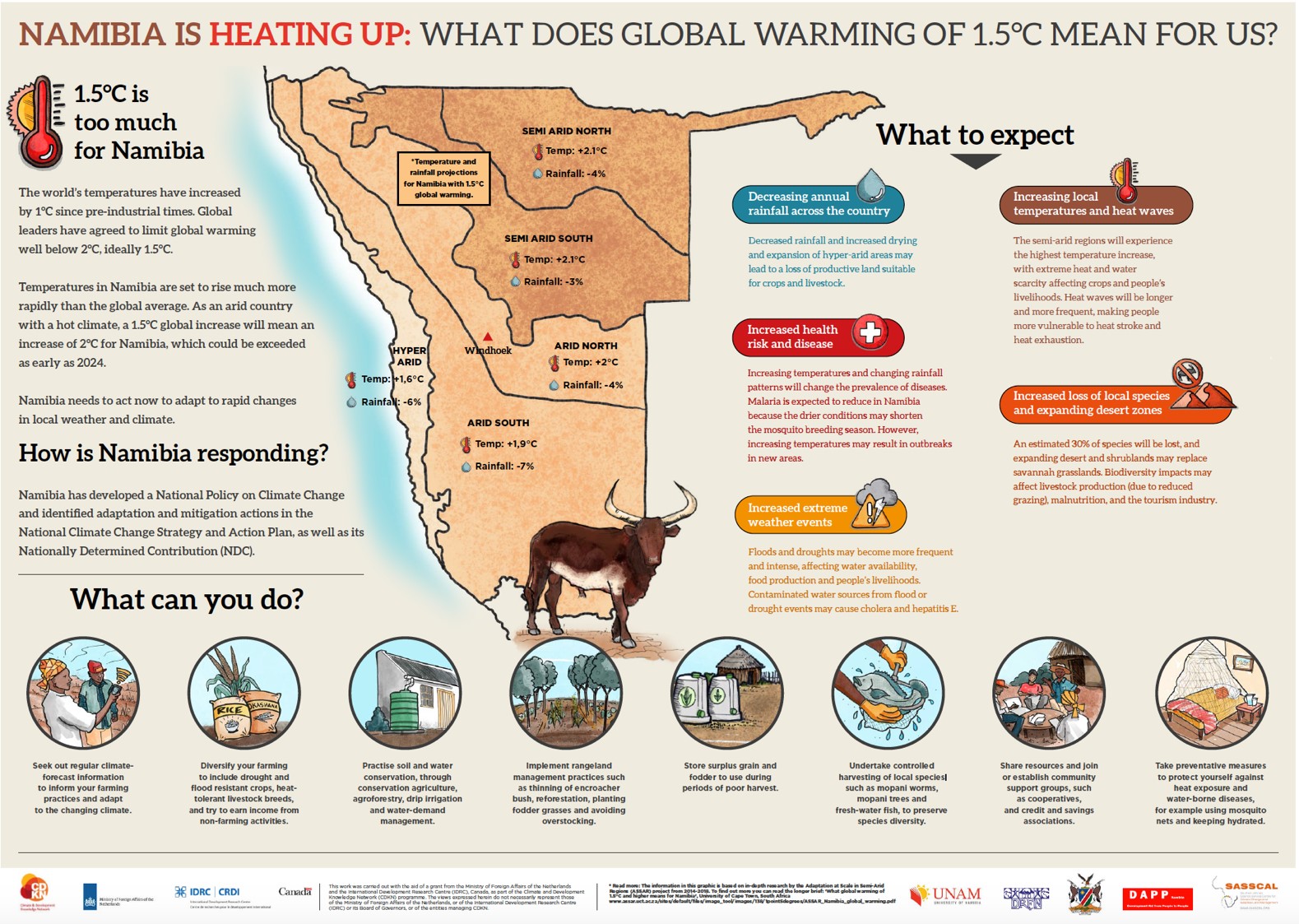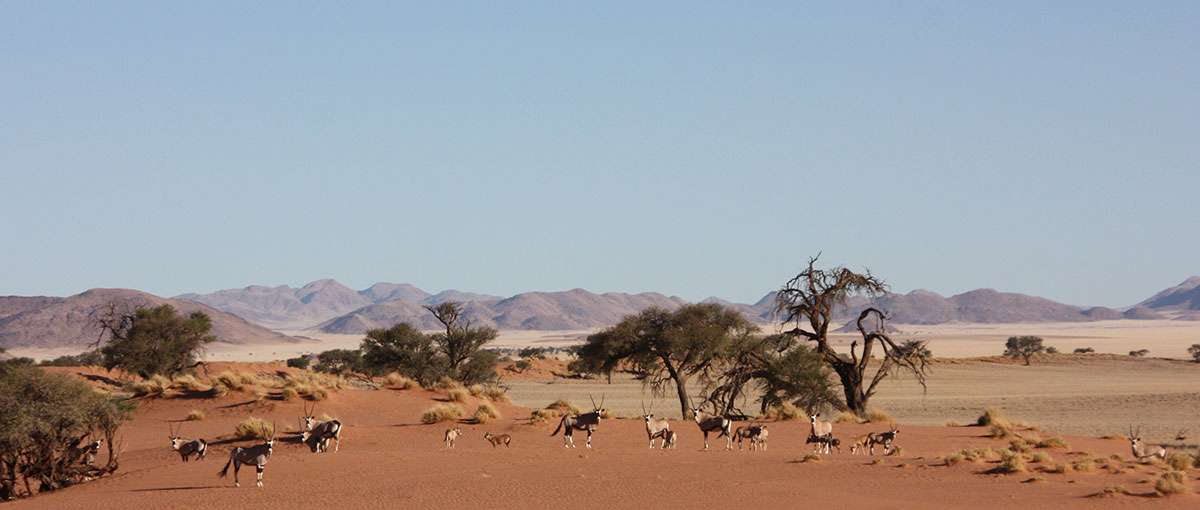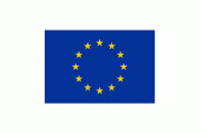A CDKN-supported project in Namibia is experimenting with different ways to communicate climate change information to policymakers both at regional and national level, as well as to local communities in more accessible ways. The project, focused on strengthening regional climate change governance and gender-responsive climate action, commissioned the development of a graphic to highlight the implications of the latest research findings on what global warming of 1.5°C means for Namibia, a climate change hotspot and an already very dry, hot and water-stressed country. And because of these variables, local warming and drying will be even more pronounced in Namibia, in comparison to the global average.
The research on the impacts of 1.5°C of global warming was done by the Adaptation at Scale in Semi-Arid Regions (ASSAR) project, which spent four years in Namibia (2014-2018) investigating how climate change impacts social groups, ethnicities and genders in different ways, and the barriers and enablers to effective climate adaptation in relation to agriculture, water and drought management, and climate information.
The Namibia team wanted to share these important findings with local, regional and national stakeholders, primarily to raise awareness on the impacts of climate change in Namibia while emphasising the need for urgent action.
With its simplified layout and language, the project team will use the graphic as a tool to communicate and provide training on the likely impacts on the different sectors of Namibia and their consequences. It shows the options that are are available to individuals, households, communities, and regions in responding to these impacts, and enhance their resilience to climate change. It also shows how the severity of impacts differs across arid and semi-arid regions within the country.
The graphic will be translated into different languages, including Oshiwambo. It will also be printed as a flyer or poster for distribution and use during different stakeholder engagements. The project team also envisions that the graphic could also be featured on national television and radio discussions for broader public engagement and discussion.
The Namibia project team is led by the University of Namibia in partnership with the Desert Research Foundation of Namibia (DRFN), Development Aid from People to People (DAPP Namibia), the Southern African Science Service Centre for Climate Change and Adaptive Land Management (SASSCAL), the Ministry of Environment, Forestry and Tourism (MEFT), the Ministry of Agriculture, Water and Land Reform, the Ministry of Urban and Rural Development and the Namibia Environmental Education Network (NEEN).
Read more about the Namibia project, Strengthening regional climate change governance through integrating gender-responsive climate action: https://cdkn.org/project/strengthening-regional-climate-change-governance-through-integration-of-gender-responsive-climate-action-into-regional-development-plans-and-projects-in-namibia/?loclang=en_gb





































